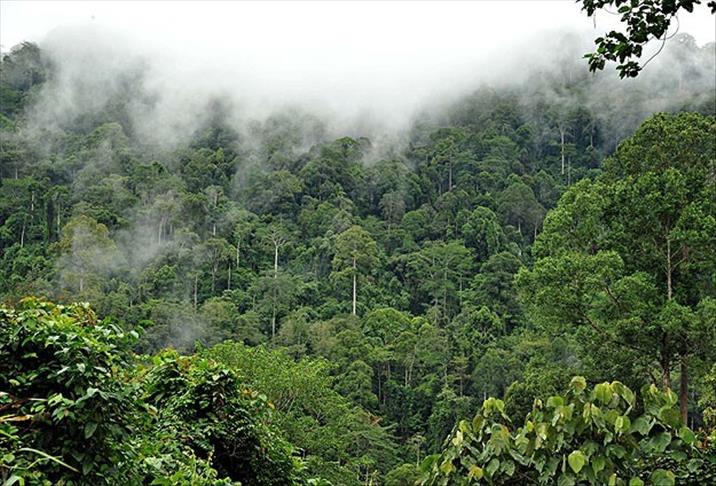
BRASILIA, Brazil
Illegal logging and drug trafficking in Peru’s western Amazon rainforest has forced a group of "uncontacted" Indians to flee over the border into Brazil and make contact with a settled Indian community, human rights organisation Survival International said Wednesday.
The Western part of the Amazon, which covers Brazil’s Amazonas, Acre and Rondonia states and parts of Peru, is home to some of the world’s last uncontacted Indians.
Survival International defines uncontacted groups as those who have no peaceful contact with anyone in the mainstream society. It is thought that there are about 100 uncontacted tribes in the world, with 77 of those located in the remotest parts of the Amazon rainforest.
Brazil’s Indian Affairs Department, FUNAI, confirmed that the uncontacted tribe made contact with the Ashaninka people, who live along the Envira river, on June 29.
When isolated groups encounter "contacted" Indians or non-indigenous communities, they are very vulnerable to diseases to which they have no immunity, like measles or influenza, as well as potential conflict.
FUNAI said that it had sent a specialist team including medical agents to the group to try to prevent such an epidemic from breaking out.
"They are trying to work hard around the clock to make sure the recently contacted Indians don't contract diseases, because as we have seen in the past, it is not unusual in this type of situation for a large proportion of an Indian population to die of quickly of diseases to which they have no immunity," said Sarah Shenker, a campaigner for Survival International. "That’s our number one concern at the moment."
Amazonian uncontacted tribes made headlines worldwide in 2010 when Survival and the BBC released what is thought to be the first-ever film footage of one of the groups.
The footage, taken from an aeroplane passing overhead, shows four children and one man, his body painted red, looking at the plane and holding bows and machetes.
Following the global outpouring of attention, and support for their protection, the Peruvian government pledged to work with Brazil to prevent loggers from pushing the Indians off their land.
"We haven't seen any tangible proof of that, no plan of action, or any reports by Peruvian government," said Shenker. "What is clear is that the authorities aren't doing enough to protect these, the most vulnerable people on the planet."
Brazilian officials and Survival International believe that drug trafficking is likely to have pushed the Indians off their land. Peru is the world’s top cocaine producer, and Brazil is an increasingly lucrative drug destination, as well as a key drug transit country with heavily trafficked routes from its Atlantic ports to Africa and Europe.
With little oversight from the federal government, these very remote, densely forested border areas are exceptionally vulnerable to drug trafficking, logging and other cross border crimes.
It is thought that a government outpost to monitor uncontacted tribes in the region was taken over by drug traffickers in 2011.


